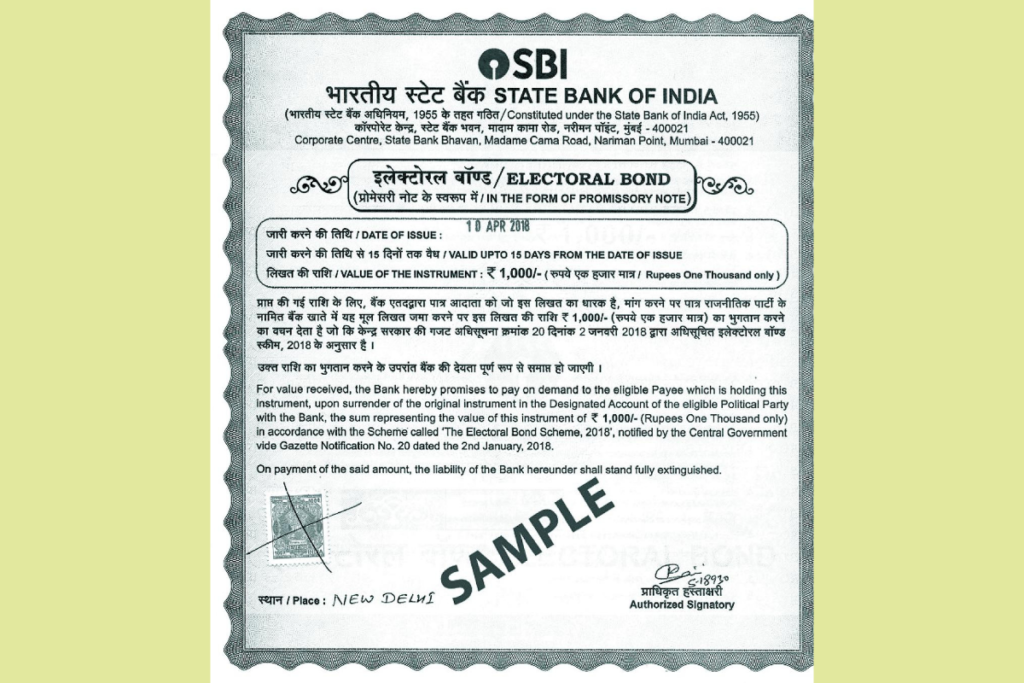Electoral Bonds: A Debated Instrument in Indian Democracy
Origin and Purpose:
Introduced in the 2017-18 budget, Electoral Bonds were hailed as a revolutionary step towards cleaning up political funding in India. These bearer instruments functioned like promissory notes, allowing individuals and entities to donate anonymously to registered political parties. The stated purpose was to curb opaque cash donations and encourage transparency in political financing.

Merits:
- Anonymity: Proponents argued that donor anonymity shielded individuals and corporations from political pressure and retaliation. This, they claimed, fostered free participation in political funding.
- Curbing black money: By eliminating cash transactions, the scheme supposedly discouraged the use of unaccounted wealth in politics.
- Level playing field: The bonds were available in various denominations, theoretically allowing even small donors to participate, potentially creating a more level playing field.
Reduced burden on parties: Electoral Bonds streamlined the donation process, easing reporting and compliance challenges for political parties.
Demerits:
- Anonymity breeds opacity: While intended to protect donors, anonymity facilitated undue influence and quid pro quo arrangements, as beneficiaries remained unknown.
- Black money loophole: Critics argued that shell companies and individuals could exploit the system to launder black money anonymously.
- Erosion of public trust: Lack of transparency fueled public doubt and suspicion, undermining trust in democratic processes.
- Unequal influence: Large anonymous donations granted undue leverage to big donors, potentially compromising democracy’s fairness.
Other Important Aspects:
- Supreme Court verdict: In February 2024, the Supreme Court declared the Electoral Bond scheme unconstitutional, citing violation of the right to equality and the right to know.
- Alternative reforms: The government is exploring alternative solutions, including amending the Representation of the People Act for increased transparency in political funding.
- Global comparison: Many countries regulate political donations with varying degrees of transparency and restrictions.
While aiming to address opacity in political funding, Electoral Bonds generated significant debate. Their anonymity, despite theoretical merits, raised concerns about undue influence, black money, and lack of public trust. The Supreme Court’s verdict highlights the need for transparent and accountable systems in political financing. India’s future approach to this critical issue remains an open question, demanding careful consideration and public discourse.